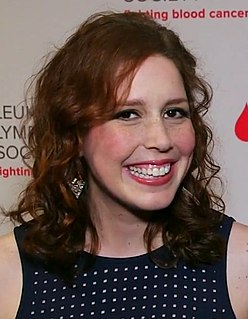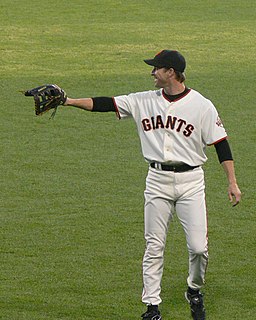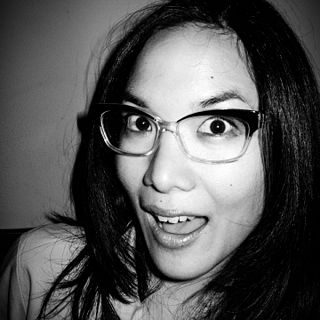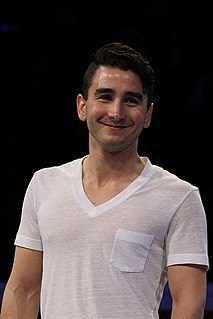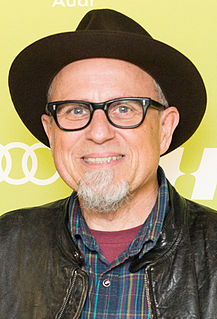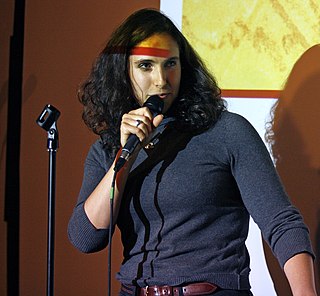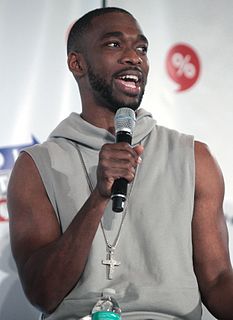A Quote by Vanessa Bayer
My dad is a really funny guy, and we would make jokes about my leukemia. When my friends would come over, we would joke about it, too.
Related Quotes
My dad was obviously a really quirky, unconventional Asian man who didn't care about what other people thought. When he would fight with my mom, he would be really dramatic. He would be like, 'Devil, get away, for I am God's property.' He would say crazy things that were so melodramatic but so theatrical and funny.
I would go for the biggest guy on the team, dump the puck in. I would chase after it because I was very fast. If I wanted to get a big hit, I would have to leap into the guy. The guy would be maybe a 6-3 defenseman, 220, I would leap into this guy and plow him over. He would just fall to the ground. That was my thing.
But while I'd be their daughter, while I'd eat the roast and come home from dates and wash the dishes, I would also be myself. I would love my mother, but I'd never want to be her again. I would never be what someone else wanted me to be. I would never laugh at a joke I didn't think was funny. I would never tell another lie. I would be the truth-teller, starting today. That would be tough. But I was tougher.
It's that weird need to make tragedy about us. When you look at 9/11, there's people who really died and family members who really suffered. And then I would be in Montana, and a guy would go, "You know, I was close to Ground Zero." And it's like, "What are you talking about? You're in Montana." Everybody had to make it about them.
Why would a lazy guy become a parent of five? Then again, why would creative people who inherently don't like change and criticism become writers, actors, or comedians? There's something about this process. I joke about it: My kids have made me a better person, and I only need, like, 34 more of them to be a really good guy.
I think if I were reading to a grandchild, I might read Tolstoy's War and Peace. They would learn about Russia, they would learn about history, they would learn about human nature. They would learn about, "Can the individual make a difference or is it great forces?" Tolstoy is always battling with those large issues. Mostly, a whole world would come alive for them through that book.
I started to make a joke that I had an imaginary friend underneath the let-out couch named Binky. I would never talk to him; I would only use him as entertainment for other people. I knew they thought that children had imaginary friends, so I was like, "I don't really believe in imaginary friends, but I want to feel like I do." I used to make a joke, "My imaginary friend Binky says this," because I knew it would get a laugh out of them.
I don't find the same things funny that many other people seem to find funny. I don't really respond to sex jokes and things like that, and some of my friends look at me and go, "Come on, Nic, that was my best joke. Why aren't you laughing?" I go, "I really don't know why I'm not laughing. I'm sort of out of sync with it." So I'd have to find something that was really about weird human behavior for me to laugh.
Now I know that if I'm in a fight or a big argument with executives or the studio or whoever, and it's getting to a point where it's starting to get bad, I don't have to have the fear of, "Am I strong enough to see this through? Would I really make a stand here? Would I really quit over this issue?" And I know in my heart that there is a place where I would walk away. I don't have to make it about my ego. I don't have to make it about whether I'm being strong enough or tough enough.
